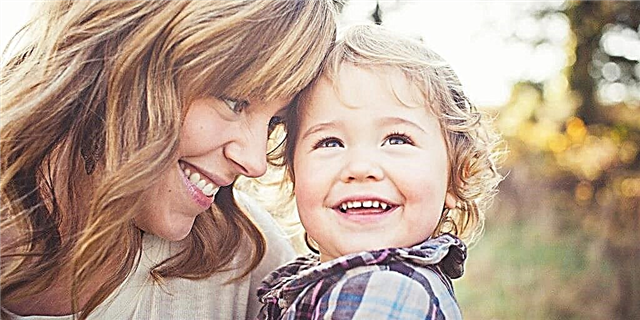There are times when a ten-month-old baby begins to sleep poorly at night, often wakes up, cries, tosses and turns in his sleep. Violations can concern both day and night rest. In addition, there are times when it becomes very difficult for the baby to go to bed. Why does a child of 10 months sleep poorly at night, often wake up and cry? How to fix the situation? This article will answer these and other relevant questions.

Healthy sleep of the baby is the key to its normal growth and development
Night rest at ten months
Sleep quality, regardless of the infant's age, is determined by a number of factors:
- Child health;
- The psychological state of the mother;
- Emotional environment at home;
- The relationship between mother and child (the amount of attention given to the baby, the presence or absence of close contact);
- Rest conditions;
- Compliance with the regime.
Normally, the sleep of a 10-month-old baby should last 13.5-14 hours a day, 11 of which are at night rest, and 2-3.5 at daytime. In this case, the number of daytime dreams should be 2. The listed values are averaged, so do not be alarmed if the child's rest deviates slightly from the established norm. In addition, each organism is individual, therefore it has its own needs for sleep.
The need for rest in this or that case is determined by the following factors:
- Genetic features. All people can be conditionally divided into 2 groups: long-sleepers (who do not feel sleepy after 8-10 hours of rest) and short-sleepers (feel awake after 6-7 hours of sleep). This feature is passed on to the child from the parents.
- The nature of wakefulness. If the baby was very active during the day (playing, walking, crawling, etc.), then the amount of time to recuperate he needs more.
- Health. After an illness (for example, a cold), the baby needs increased rest in order to recover, so he can sleep longer than other children.
- Rest conditions. It is known that in a dark, well-ventilated room with a lower temperature, sleep is more restful and deep.
- Preparation ritual. Actions taken before bed can be both relaxing and stimulating.
On a note. It is not at all necessary to adjust the infant's sleep to the general standards. In addition, studies show that deviations of more than 1 hour up or down are quite rare.
To understand that the baby's sleep is not normal, you need to pay attention to the signs of lack of sleep:
- The baby constantly wakes up 2-3 hours earlier than the prescribed time;
- The kid regularly falls asleep in a stroller, car (if a walk or trip does not coincide in time with the period of normal sleep);
- The child does not get up on his own at 7 o'clock (plus or minus 30 minutes);
- During wakefulness, the baby is often naughty, looks tired, irritated;
- The baby has increased excitability. This condition is due to the action of cortisol (stress hormone), which is actively secreted with a lack of sleep;
- Once every few days, the newborn falls asleep abruptly much earlier than the time set for a night's rest (in this way the body tries to make up for the lack of sleep);
- The child gets up too early. Getting up regularly at 6 a.m. indicates accumulated fatigue due to lack of sleep or going to bed too late. With preschool children, the rule “the later he goes to bed, the later he wakes up” does not work - the child will get up early anyway;
- The baby cries before falling asleep and after waking up. If health problems are excluded, then whims in such cases indicate non-compliance with the sleep regimen, overwork of the child.
On a note. Unlike very young babies (up to 4-5 months), 10-month-old babies usually do not wake up with a strong desire to eat. Therefore, if a child gets up with tears, then the problem is clearly not in feeding, but in non-observance of sleep hygiene.

Daily routine for a 10 month old baby
Causes of poor sleep in a child
Deviations from the norm can be the result of natural physiological reasons, in such cases, you do not need to worry about the baby's condition:
- The ratio of daytime and nighttime rest varies during the first 12 months of life. Such phenomena are explained by the normal process of growth and development of the child.
- Periodic sleep disturbances are the body's response to changes.
- Individual characteristics that determine the need for rest in each case. The infant may lag slightly behind peers or, conversely, be ahead of them. In this regard, the duration of sleep differs from the established norms. Age regressions affecting sleep, due to individual characteristics, can be perceived by the child sharply or occur almost imperceptibly.
One of the most important causes of sleep disturbance is the age characteristics of a 10-month-old baby. At this stage, the child reaches significant development, acquires many skills and abilities. Such changes put a great strain on the fragile nervous system of the baby, therefore, they can often lead to overexcitation or severe fatigue of the child. Both the first and the second conditions have an equally negative effect on sleep patterns and the quality of rest.
On a note. Development, acquiring new knowledge, learning skills at the age of 10 months are much more important for a child than sleep. This is not a deviation. In fact, these are natural consequences of the normal growing up process.
The following circumstances can cause anxiety to the baby during sleep, make him spin and periodically wake up:
- Mom's nervous state. It is very important that the woman maintains calmness and peace of mind, otherwise negative emotions will be transmitted to the child and affect his sleep.
- Various pathologies. These include:
- Colic;
- Regurgitation;
- Allergy;
- ARVI;
- Dermatitis;
- Cystitis;
- Rickets.
- Etc.
To exclude diseases as a cause of sleep disturbance, you must consult a pediatrician.
- Poor recreation conditions. In order for the child to sleep well, without tossing and turning or flinching, the environment around him should be calm. Therefore, you need to provide darkness (promotes the production of melatonin), silence, fresh air, a comfortable bed.
- Non-compliance with sleep patterns. By the age of 10 months, the baby goes to 2 days of sleep. Such changes require restructuring of the body and getting used to the new schedule. The recommended time for waking up in the morning is between 6:00 and 7:30 in the morning, the time to go to bed for a night's rest is 19: 00-20: 00. Too long periods of daytime and nighttime sleep are unacceptable. The child should fall asleep at a convenient time for him (you can determine it by observing the signs of fatigue of the crumbs).
- Incorrect associations with sleep - the child associates the process of falling asleep with motion sickness or GW.
- Excitement or lack of sleep. A serious mistake of parents is active pastime before a night's rest (noisy games, watching TV).
- Lack of parental attention while awake. Sleep for a baby is equated with separation from mom, so it is very important to pay enough attention to the baby throughout the day.
- Stress. Such a state is often generated by new conditions, acquaintances and impressions (arrival of guests, completion of GW, potty training, returning after a long absence, visiting a doctor, etc.).
Need to know! If none of the above reasons is suitable for a specific situation, then the phenomenon in which the baby began to sleep poorly can be called "sleep regression". It is explained by a sharp leap in the development of the child's body.

There are many reasons for a baby's restless sleep.
Signs of regression at 10 months of age are:
- Difficulty falling asleep, night awakening, restless sleep;
- Irritable behavior of the child, frequent whims, tantrums;
- Increased appetite;
- An increased need for attention, love and affection. The baby needs tactile contact with his mother;
- Increased physical activity.
The most common reason why a child at 10 months wakes up at night and cries, is the congestion of his nervous system, which cannot cope with the changes taking place in the baby's body. Another important factor is the habit of eating at night. Toddlers get used to night feeds and take them for granted. It is very important here to distinguish between the demand for milk or formula as a manifestation of hunger and as a need to calm down. A 10 month old baby may well do without night feeds. An agitated state caused by active games and other similar activities before bedding at night is also the cause of anxious sleep, as a result of which the baby often wakes up, starts screaming, crying.
Other common causes of poor infant sleep include:
- A sharp destruction of the associative row (the mother no longer puts the child next to her at night, the baby is no longer rocked);
- No fatigue due to too long naps;
- Feeling of fear, helplessness;
- Taking medications (in particular, antihistamines).
How to identify the cause of poor sleep
To understand why a child at 10 months old does not sleep well at night, you need to carefully observe his behavior and general condition for at least 7 days. A similar phenomenon can be temporary and occur due to an increased load on the crumb. If this condition persists for more than 1 week, then it is recommended to consult a pediatrician or neurologist.

Seeing a doctor can help determine the exact cause of your child's sleep disorder
What a pediatrician can recommend
What should be done to restore normal sleep? Some parents in such cases resort to alternative medicine, various conspiracies and other dubious methods of solving the problem. An experienced and competent physician can advise on the following:
- Adjust the daily routine.
- Observe the laying down ritual.
- Teach your baby to distinguish between day and night feeding.
- Tidy up the psychological situation in the family.
- Show more attention to the baby.
- Avoid sleep deprivation and overwork.
- Provide normal conditions for a comfortable sleep (the optimal air temperature is within 18-20 degrees, the recommended air humidity varies from 40 to 70%).
On a note. According to Dr. Komarovsky, if at least one of the components of healthy sleep “does not work,” the child has problems with night and day rest.
Often, problems with sleep in 10-month-old babies occur for natural reasons, but in some cases, the wrong actions of the parents are to blame. It is important to understand your mistakes and try to correct them, then the baby's sleep will definitely improve.



